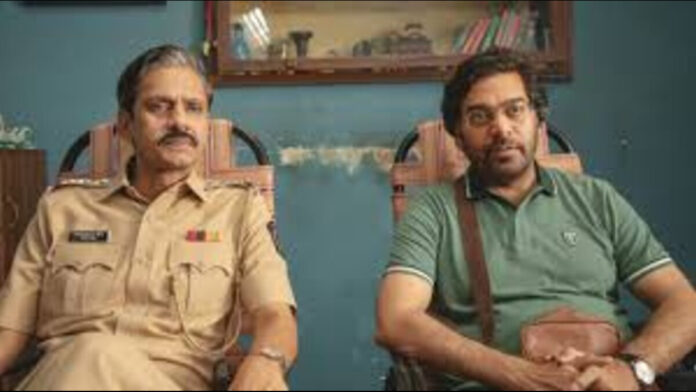Murder in Mahim offers a relatively new perspective on working-class stiffs and their connection to killings that result from unfortunate circumstances rather than accidents, for a jaded audience that has nearly always been invited to look at a split-level Mumbai, residing in either fancy high-rise towers or its slummy, scummy underbelly.
The eight-part series, which is loosely based on the excellent Bombay chronicler Jerry Pinto’s book of the same name, deviates slightly from the original in a few ways but generally adheres to the core plot, which centres on everyday people (and their families) who can be found in modest homes, packed police thanas, general wards in hospitals, and beach shacks through a critical examination of the LGBTQi community.
Inside a public lavatory at Mahim station, the brutally murdered body of a teenage sex worker with his insides removed is discovered. As they investigate, police inspector Shivajirao Jende (Vijay Raaz) accompanies rookie officer Firdaus Rabbani (Shivani Raghuvanshi) to get practical experience. A few additional police officers (Bharat Ganeshpure, Satya Vijay) start showing up for reasons that are best kept secret as the two stumble along the trail of bodies that continue to pile up.
Plenty of red herrings exist. Is Sunil, the son of the late journalist Peter Fernandes (Ashutosh Rana), who had a falling out with Jende, the murderer? Furthermore, is Sunil gay? Are the other two police officers attempting to assist or obstruct the investigation? What connection does a dead man’s sister (Sonia Balani) have with the murders?
There are moments when you lose yourself in the writing, and those are the moments where it verges on being banal or explaining. There is a group of demonstrators outside the police station going through the motions because the show is set in the time before the Supreme Court’s decision to decriminalise same-sex partnerships. There are long stretches and eye-rolling scenes (particularly one involving Fernandes and a reclusive woman who craves attention). Additionally, the rivalry between Raaz, who assumes Jende’s role, and Rana’s retired journalist seems forced, despite the fact that it’s entertaining to watch these two strong performers spar before teaming up.
The most impactful part of the series, written by Mustafa Neemuchwala and Udai Singh Pawar, and directed by Rajesh Acharya, is the portrayal of men who like other men, and who have to resort to drastic measures to manage crucial intimacy. While portraying an ageing roué, Rajesh Khattar comes out as exaggerated yet realistic about the difficulties in finding enduring love. As his character puts it, when it comes to emotion, sometimes it’s not only about the sex; sometimes it’s about warmth and touch. How harsh and alienating is it to have to go to stinky restrooms even for that?
That’s when you encounter the stench of bigotry, hatred, and homophobia, which no amount of deodorant can completely mask. You wrinkle your nose as the show wafts those your way, but you’ve already taken them in before you can stop breathing. Could you change your opinion on men and women who choose to adore and hold the sex they want? Yes, says the series, but before that, there will be blood.




